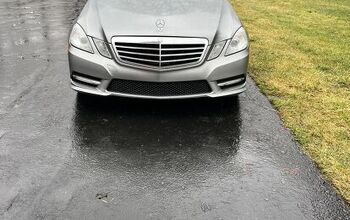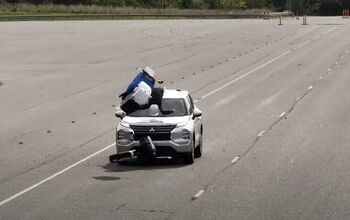California Wins the Gas War, Fickle Automotive Coalition Realigns Position

The Coalition for Sustainable Automotive Regulation (CSAR) is officially withdrawing from a lawsuit between California and federal authorities over the coastal state’s ability to establish its own emissions standards. California leadership had vowed to ignore the Trump administration’s proposed rollback and began making binding side deals with automakers (specifically BMW, Ford, Volkswagen, Volvo, and Honda) committed to adhering to the aggressive limits established under President Obama. Unfortunately, this ran the risk of undermining the revised national standards penned shortly after the United States became energy independent. It also set up the CSAR to embrace any entity that had views conflicting with California Air Resources Board.
Federal concerns were that the Golden State setting its own targets would butt heads with the relaxed national benchmarks and ultimately divide the U.S. market and may even influence the types of vehicles that were manufactured for all of North America. But the issue became moot once President Biden broke the record for executive orders by signing 22 in his first week. Predictably, the brunt of these were designed to instantly undo any actions taken throughout the duration of the Trump administration and included one directing the Department of Transportation and EPA to reconsider the 2019 decision to remove California’s authority to limit tailpipe emissions by April and revise the fuel-efficiency standards for automobiles by summer.
It wasn’t long before Toyota, which had also joined the Coalition for Sustainable Automotive Regulation — along with Hyundai, Kia, Mazda, Mitsubishi, Subaru, and the National Automobile Dealers Association — said it was similarly “reconsidering” its position.
Meanwhile, companies backing California ( especially Ford) suggested opponents should change their minds. Before long, the Alliance for Automotive Innovation (AAI) — which represents many of the world’s largest automotive conglomerates and tech firms — issued similar messaging that members should support the Biden-Harris energy plan. It even vowed to work with the administration on establishing a revised nationwide program that utilizes California in addition to reaching net-zero carbon production from automobiles and transitioning the whole nation toward electric vehicles.
They appear to have taken its advice to heart, too. On Tuesday, the Coalition for Sustainable Automotive Regulation announced that it had realigned itself with the new administration much in the same way GM had in November.
From CSAR:
The Coalition for Sustainable Automotive Regulation (CSAR) chose to intervene in a lawsuit between California and the federal government to support a unified fuel economy and greenhouse gas (GHG) program. We are aligned with the Biden Administration’s goals to achieve year-over-year improvements in fuel economy standards that provide meaningful climate and national energy security benefits, reduce GHG emissions and promote advanced technologies. In a gesture of good faith and to find a constructive path forward, the CSAR has decided to withdraw from this lawsuit in order to unify the auto industry behind a single national program, with ambitious, achievable standards.
We don’t anticipate hearing much more from the Coalition for Sustainable Automotive Regulation and presume any future announcements to closely resemble messaging from the Alliance for Automotive Innovation.
[Image: Marc Bruxelle/Shutterstock]

A staunch consumer advocate tracking industry trends and regulation. Before joining TTAC, Matt spent a decade working for marketing and research firms based in NYC. Clients included several of the world’s largest automakers, global tire brands, and aftermarket part suppliers. Dissatisfied with the corporate world and resentful of having to wear suits everyday, he pivoted to writing about cars. Since then, that man has become an ardent supporter of the right-to-repair movement, been interviewed on the auto industry by national radio broadcasts, driven more rental cars than anyone ever should, participated in amateur rallying events, and received the requisite minimum training as sanctioned by the SCCA. Handy with a wrench, Matt grew up surrounded by Detroit auto workers and managed to get a pizza delivery job before he was legally eligible. He later found himself driving box trucks through Manhattan, guaranteeing future sympathy for actual truckers. He continues to conduct research pertaining to the automotive sector as an independent contractor and has since moved back to his native Michigan, closer to where the cars are born. A contrarian, Matt claims to prefer understeer — stating that front and all-wheel drive vehicles cater best to his driving style.
More by Matt Posky
Latest Car Reviews
Read moreLatest Product Reviews
Read moreRecent Comments
- 28-Cars-Later Actually pretty appealing (apparently I'm doing this now). On a similar note, a friend of mine had a difficult situation with a tenant which led to eviction and apparently the tenant has abandoned a 2007 Jag S-Type with unknown miles in the garage so he called me for an opinion. Before checking I said $2-3 max, low and behold I'm just that good with the 3.0L clocking in at $2,3 on average (oddly the 4.2 V8 version only pulls $2,9ish) and S-Types after MY05 are supposedly decent.
- DO I have owned a 2012 LR4 since day one and it has been the best vehicle I have ever had the pleasure of having in the garage. I know how easy it is to hate on Land Rover but this LR4 is comfortable, has a ton of storage room and is so versatile. With 110k miles, mine is now relegated to ‘other’ car use but is still the go to for off road adventures and snow runs. Nice to see one featured here - I think they are so underrated.
- Tane94 I'd be curious to know whether 87 octane is no longer the most popular grade of gasoline by sales volume. My Costco often runs out of Premium grade and I suspect 93 octane might now be the most popular grade of gas. Paying 40-50 cents more per gallon 87 vs 93 octane because of turbo engines is the real story
- Redapple2 125 large? You re getting into 911 territory.
- Redapple2 Industry worst quality prevents any serious consideration. I ll take an Evil gm Vampire Denali first.


































Comments
Join the conversation
"Should one buy a very good car now..." Proposed QOTD: What would be a "very good car" to buy now, if one bought into this line of thinking? [Edit: Arghh bad aim. (I love it when I'm wrong.)]
CARB is easy to bash unless you grew up in Southern California. I'm not for government overreach, but my first hand knowledge and observation call tell you that CARB did a whole lot of good. Growing up in the 60's in Southern California there were about 20 million people in the state. I used to visit my Grandma in the San Gabriel Valley-with the San Gabriel Mountains all but invisible to the naked eye-less than twenty miles away as the crow flies. Playing on the black top at school or at my Grandparents house my throat used to ache and my eyes would water-all due to very thick smog. Fast forward 50 years later-the state has 40 million residents ( and more motor vehicles than any other state) and the air is cleaner than it's ever been-mostly due to CARB regulation. So yes-there can upsides to regulation. I have since moved and retired 9 years ago.